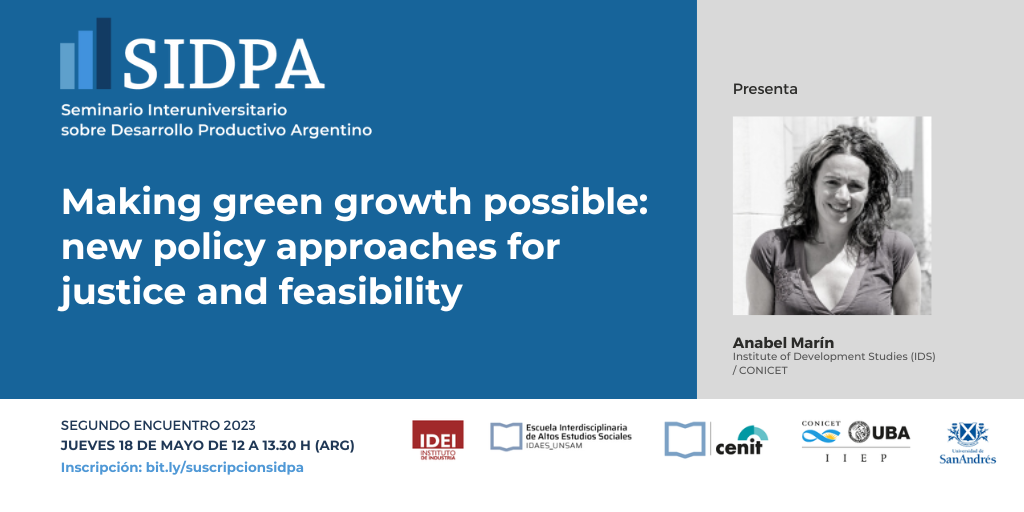Under what conditions are industrial policies effective in promoting “green growth”? Governments face several international and local pressures to transform their economies into more sustainable directions. Because of these pressures, states are beginning to adopt industrial policies for “green transformations.” These transformations, however, involve new kinds of tensions and dilemmas that current policy approaches have limitations to address. We rely on a comparative analysis of the mining sector in Argentina and Chile –countries in which the mining sector has won an increased relevance during the last three decades–, to show new the kinds of tensions emerging, to discuss the political limitations of current approaches to industrial and S&T policymaking in the countries and to propose an alternative framework that recovers the role of community participation in the design and implementation of policies that govern the use of common resources. In a context in which the production apparatus in most countries is in private-sector hands, there has been a strong call for the synergic collaboration between public and private actors to design and adopt development strategies and thus deal with primary market failures. Under these approaches, however, the role of local communities and civil society in shaping productive policies is usually absent from the discussion. The lack of citizens’ participation in policymaking in a context of increasing awareness of environmental and social problems associated with productive activities, has led in many countries to the mobilization of local communities to resist the operation of extractive industries. We argue that for green productive policies to be effective, we need new institutions that recognize and advocate for the interests and knowledge of local communities and civil society more in general and promote their involvement in the entire process of policymaking. Our suggestions are based on both pragmatic and normative reasons. On the pragmatic side, we argue that communities must be included in the policymaking process because of their green interests and knowledge. From a normative side, we argue that communities must be included in policymaking to promote procedural justice.
Más información: https://sidpa.ar/





